Find Help
More Items From Ergsy search
-
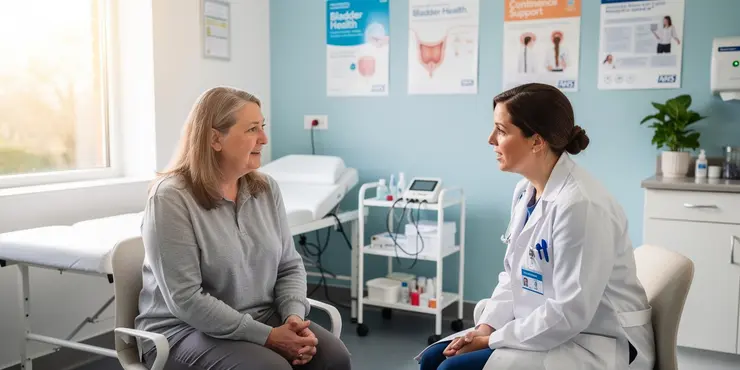
Incontinence | NHS
Relevance: 100%
-
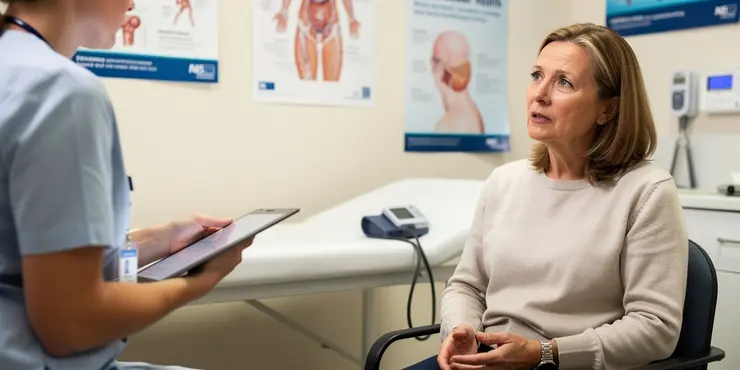
Pelvic health: Urge Incontinence
Relevance: 91%
-
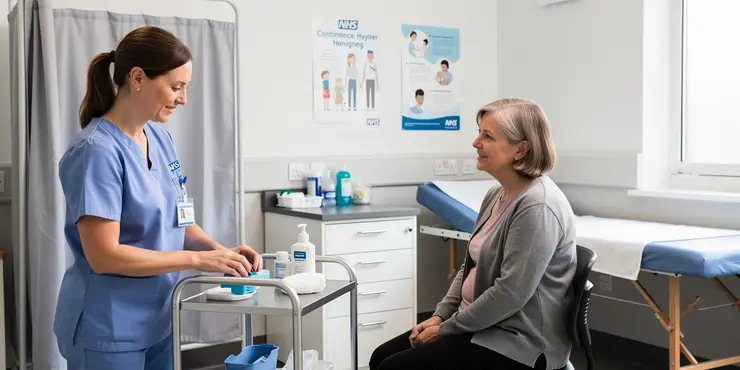
Avoiding infections with urinary incontinence
Relevance: 90%
-
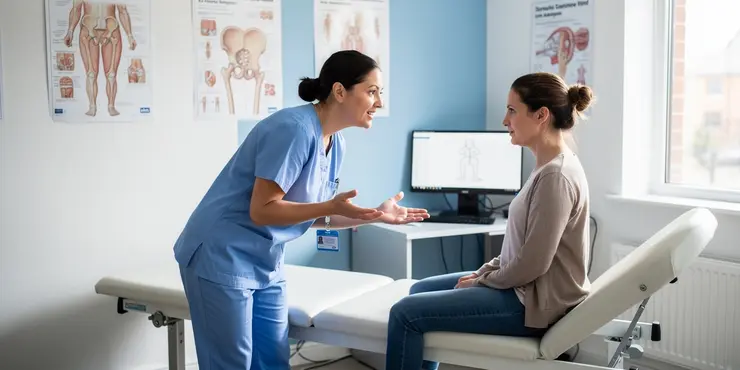
Incontinence and Prolapse - Physiotherapy Advice
Relevance: 89%
-
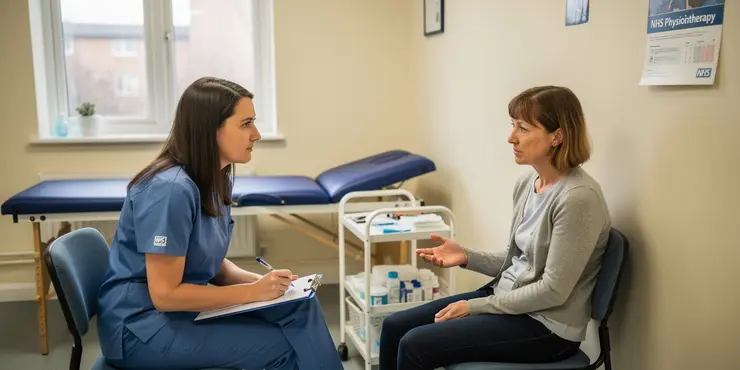
Physiotherapy Assessment of Urinary Incontinence
Relevance: 89%
-
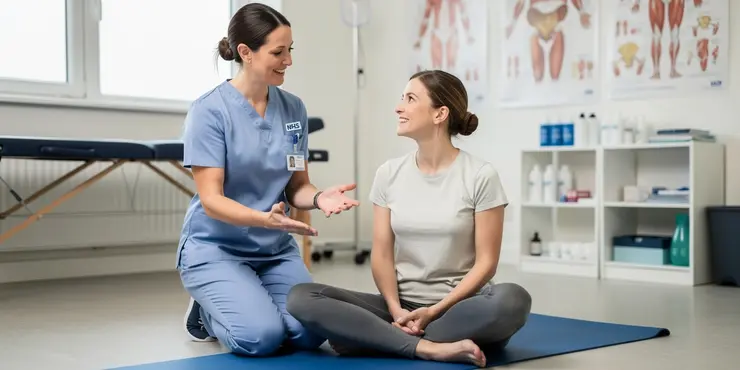
Incontinence and Prolapse - Physiotherapy Advice
Relevance: 89%
-
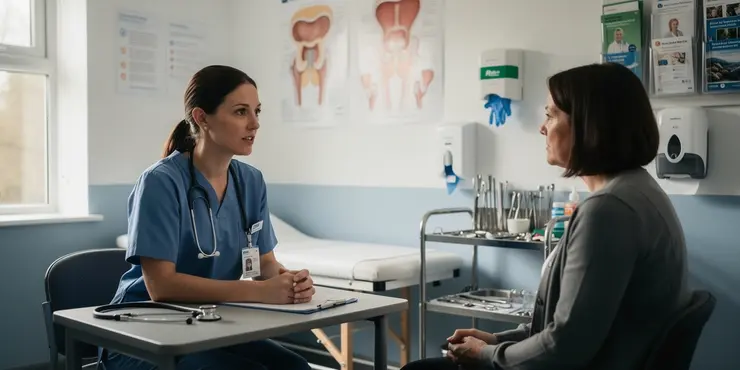
Pelvic health: stress urinary incontinence
Relevance: 83%
-
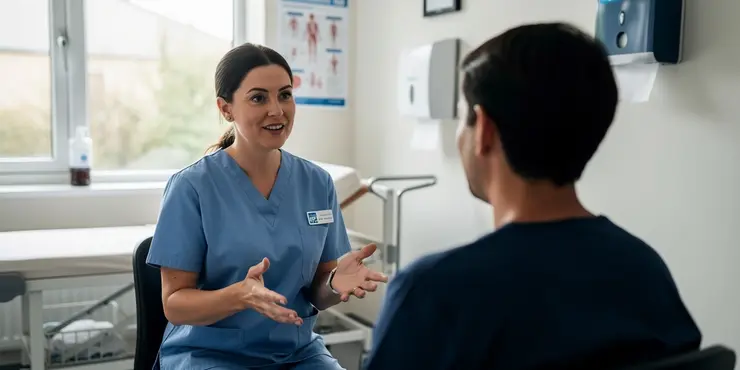
Newcastle Specialist Continence Service's Light Urinary Incontinence Project
Relevance: 78%
-
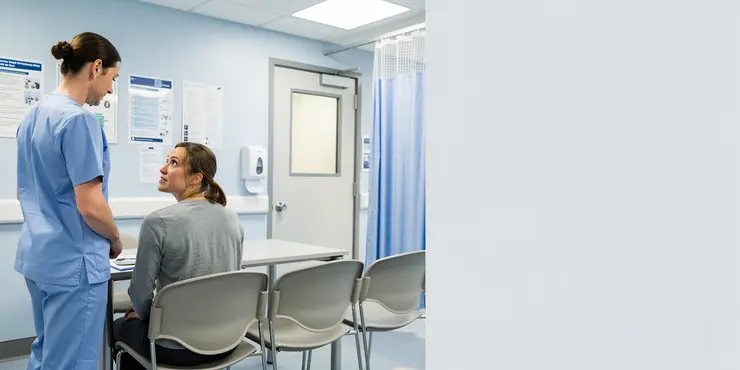
Sandwell and West Birmingham Hospitals NHS Trust – Faecal Incontinence and Constipation Healthcare
Relevance: 73%
-
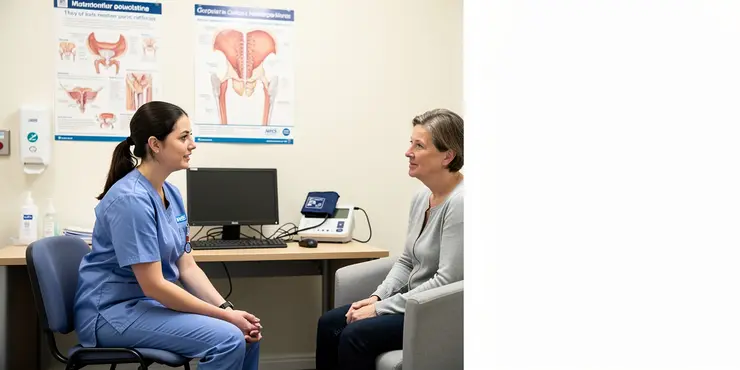
Your pelvic health matters: insights from NHS clinicians
Relevance: 37%
-
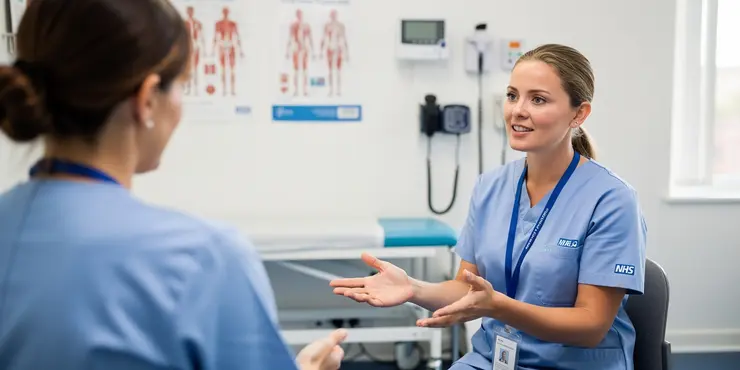
What are the side effects of prostate cancer surgery?
Relevance: 26%
-
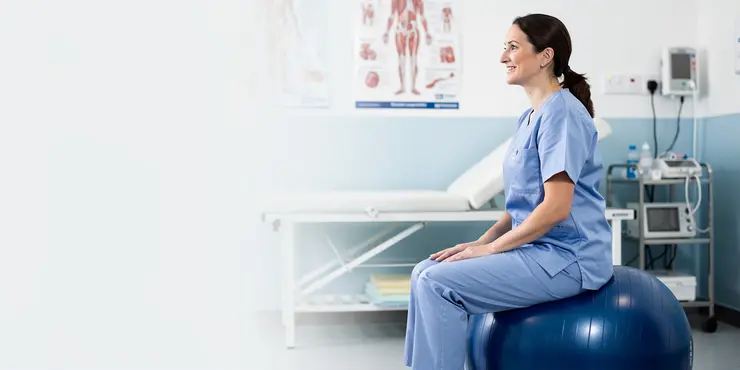
Pelvic Floor Exercises - Using Your Pelvic Floor to Calm Down Your Bladder
Relevance: 25%
-
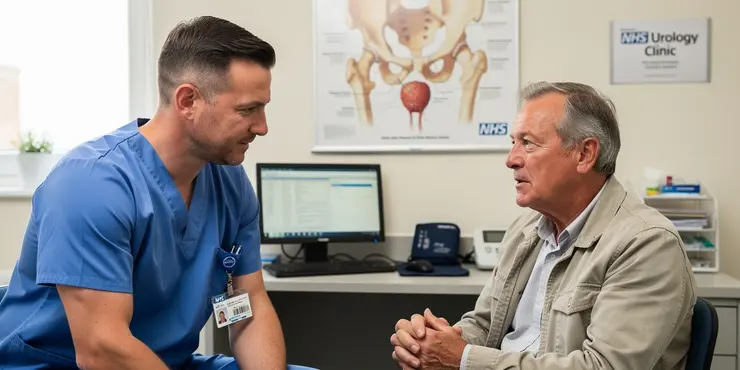
How does surgery treat prostate cancer?
Relevance: 23%
-
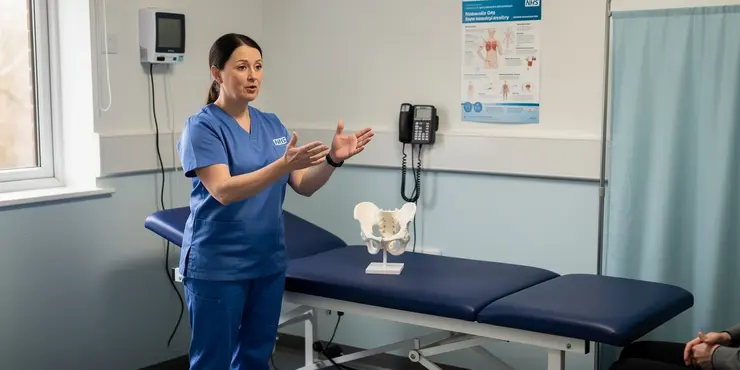
How to do pelvic floor exercises | NHS
Relevance: 21%
-
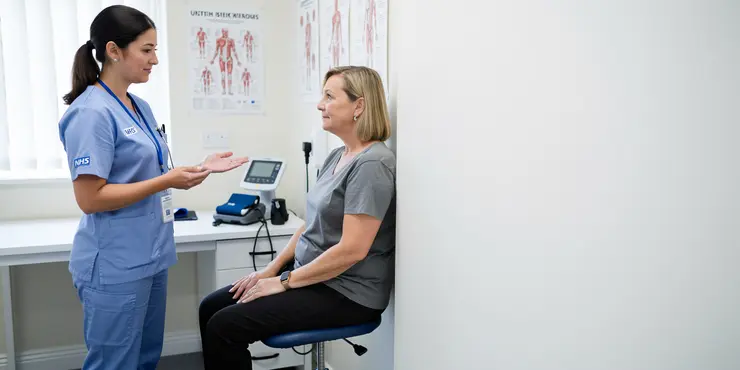
The Pelvic Floor Muscles - Developing an Exercise Programme
Relevance: 20%
-
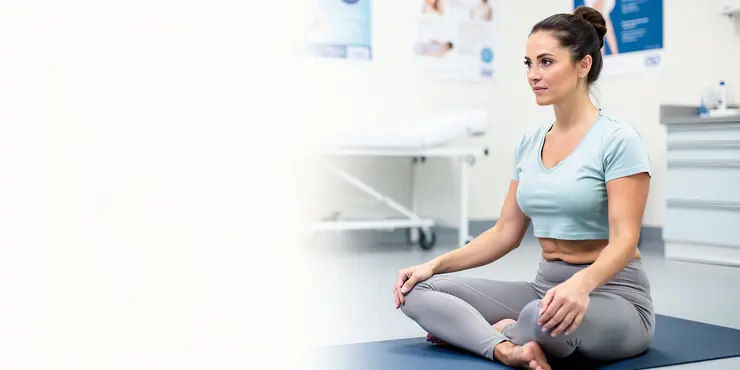
Pelvic Floor Exercises - Using Your Pelvic Floor to Calm Down Your Bladder
Relevance: 19%
-
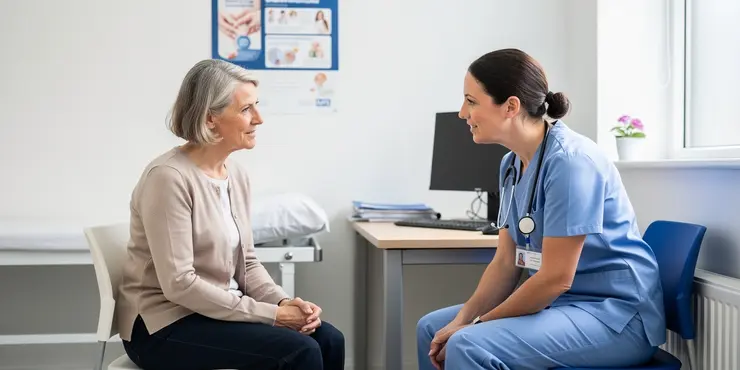
Pelvic health: prolapse
Relevance: 18%
-
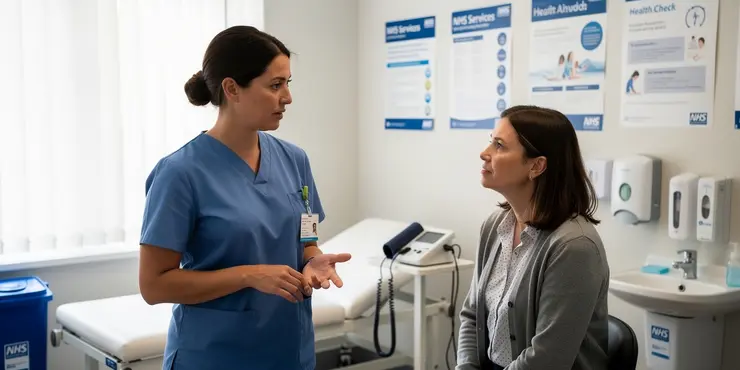
Prolapse Types and Tips
Relevance: 18%
-
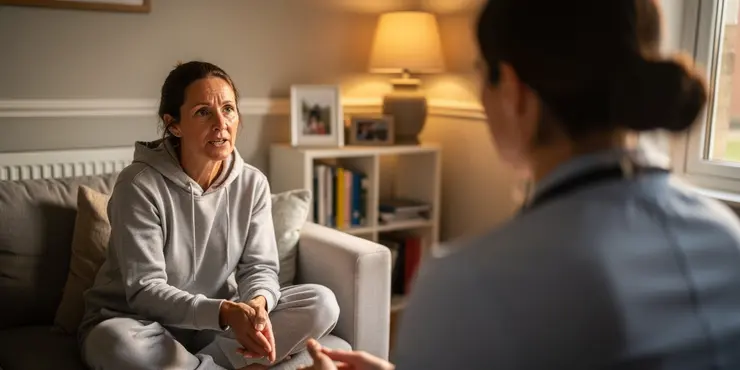
Pelvic health: prolapse
Relevance: 18%
-
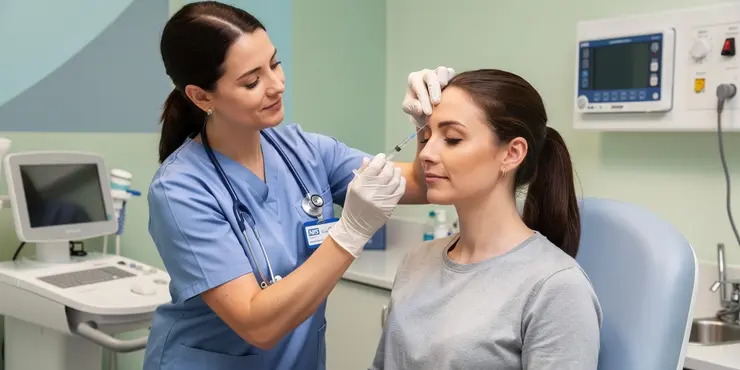
Can Botox be used for treating conditions other than wrinkles?
Relevance: 18%
-
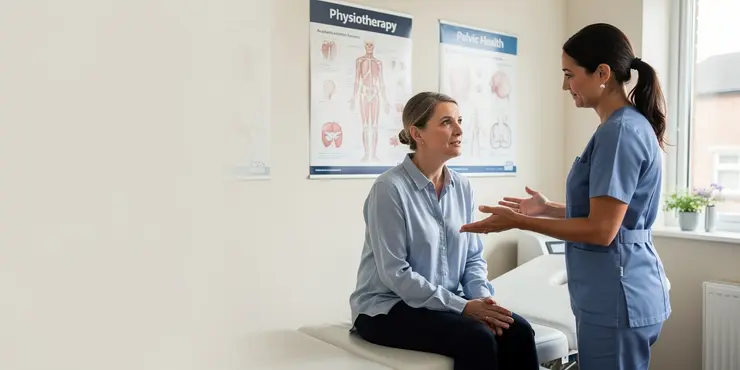
Prolapse Management
Relevance: 18%
-
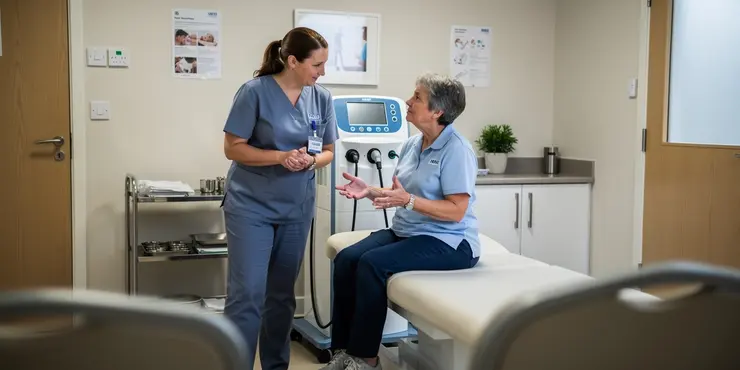
How does cryotherapy work in treating prostate cancer?
Relevance: 17%
-
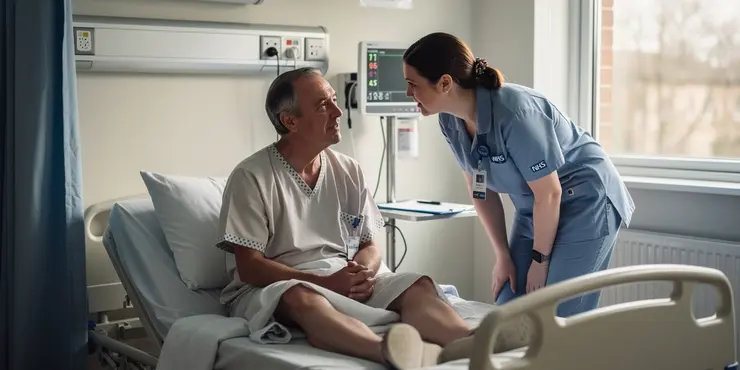
Prostate Surgery
Relevance: 17%
-
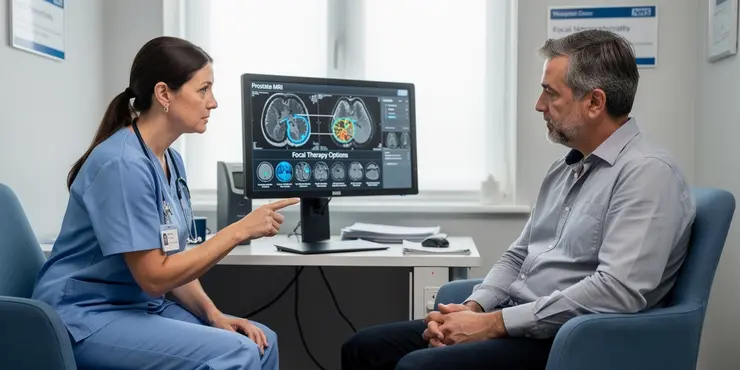
Is focal therapy an option for prostate cancer?
Relevance: 17%
-
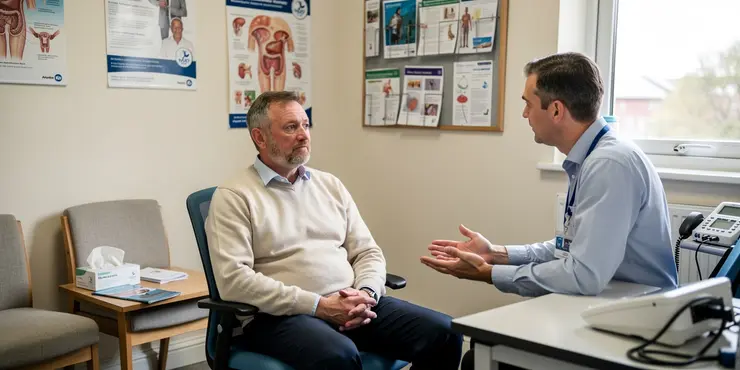
What are the symptoms of BPH?
Relevance: 12%
-
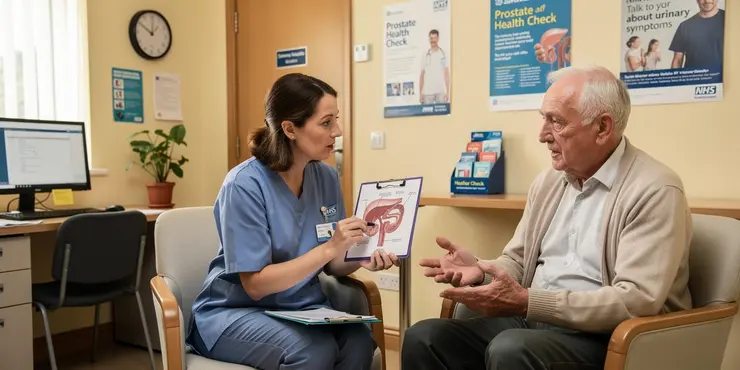
Are there any complications associated with untreated BPH?
Relevance: 12%
-
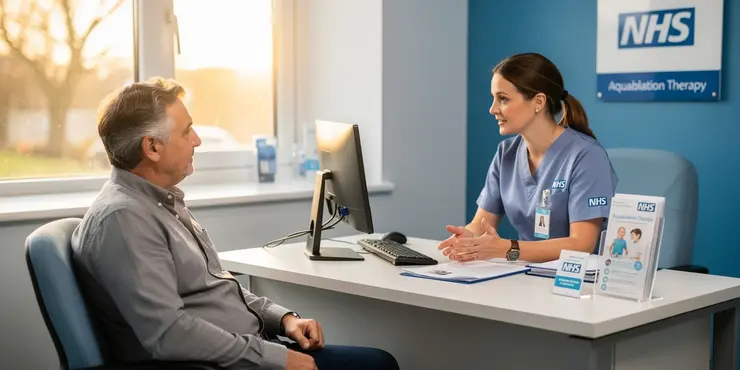
Aquablation Therapy - Minimally Invasive Enlarged Prostate Treatment - Ramsay Health Care UK
Relevance: 12%
-
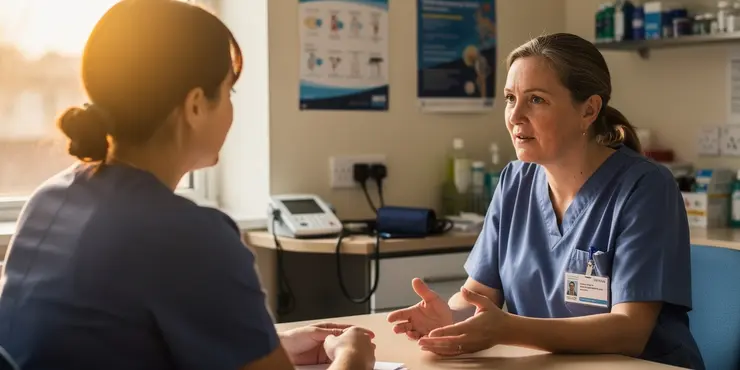
What are the side effects of bowel cancer treatment?
Relevance: 11%
-
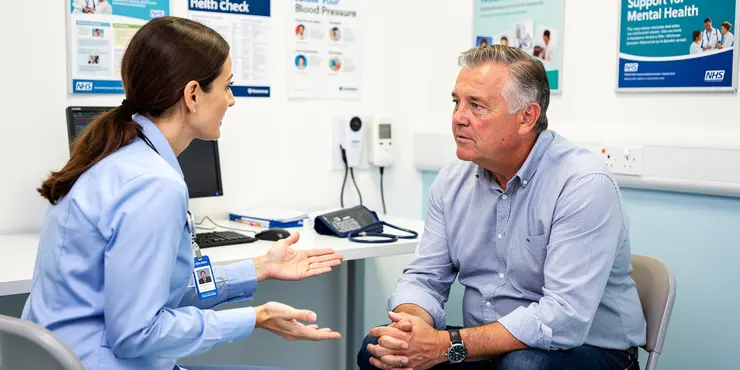
Living with prostate cancer
Relevance: 8%
-
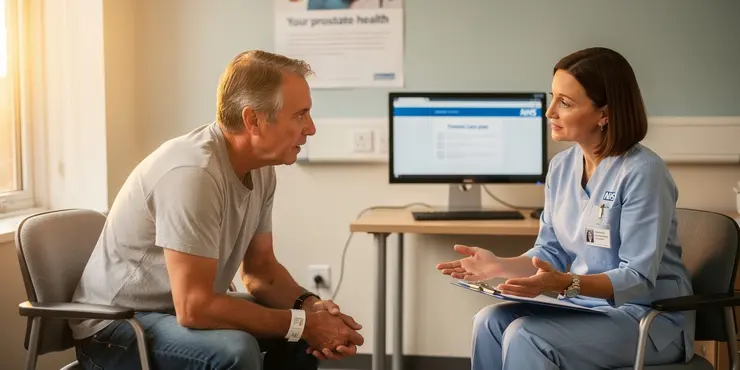
Treating prostate cancer
Relevance: 7%
-
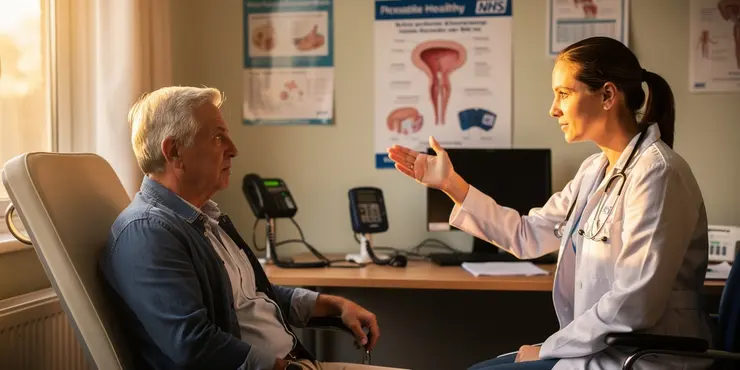
What is Prostate Cancer?
Relevance: 6%
-
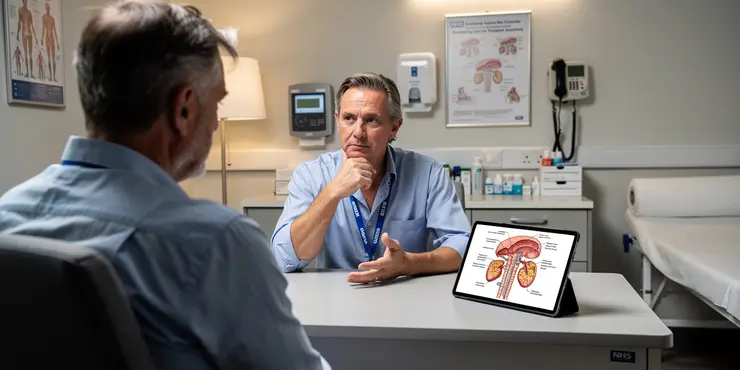
When is surgery recommended for BPH?
Relevance: 6%
-

What is the most common surgical procedure for BPH?
Relevance: 6%
-
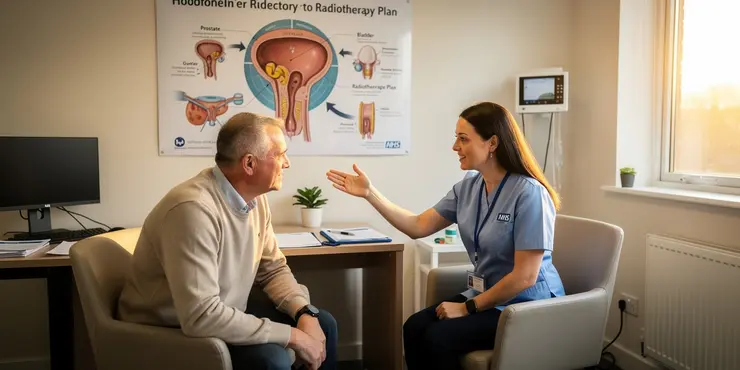
What is it like having Prostate Radiotherapy treatment?
Relevance: 6%
-
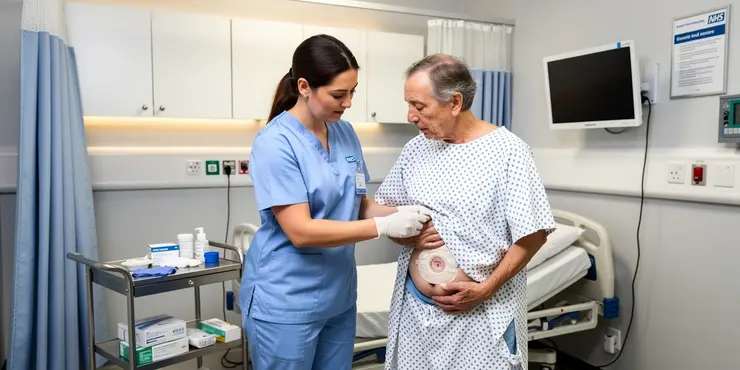
Why might someone need a stoma bag?
Relevance: 5%
-
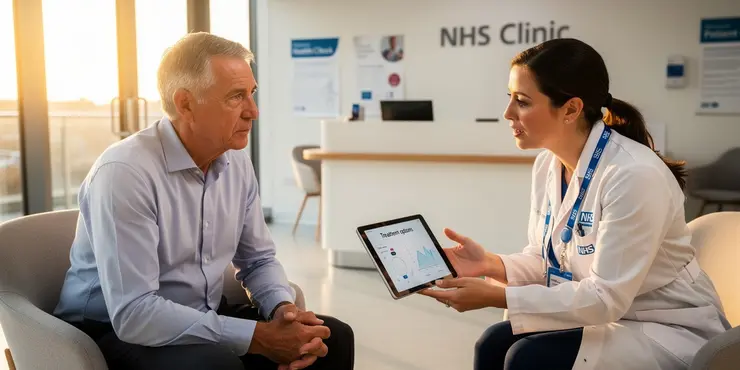
How is prostate cancer treated?
Relevance: 5%
-
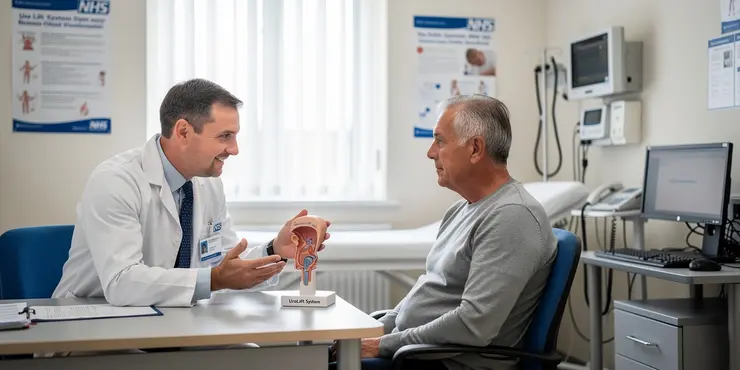
What are minimally invasive procedures for BPH?
Relevance: 5%
-
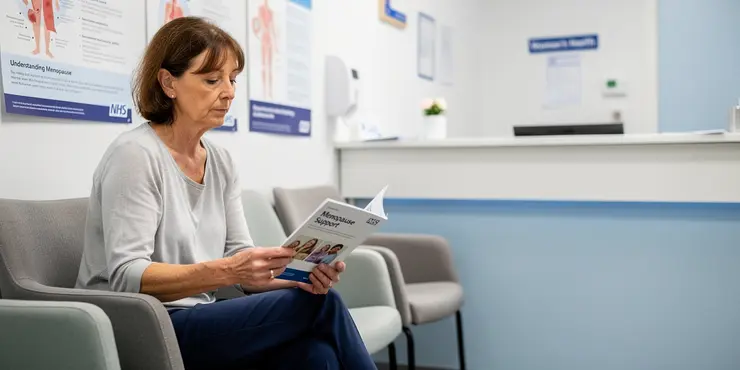
Does the menopause just happen suddenly?
Relevance: 5%
-
What is the role of estrogen in menopause?
Relevance: 5%
-
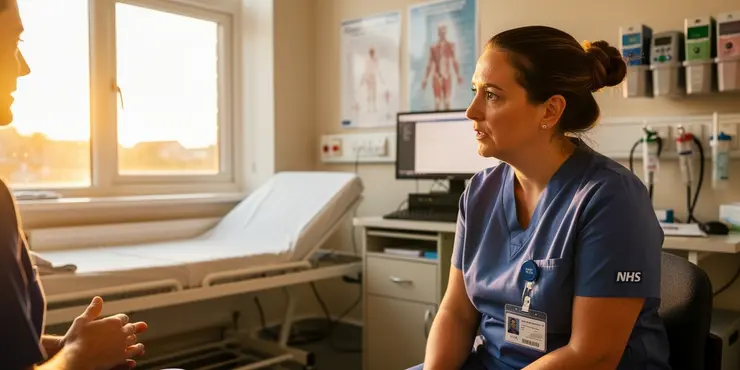
What factors determine the treatment plan for prostate cancer?
Relevance: 5%
Understanding Incontinence: Information from the NHS
What is Incontinence?
Incontinence refers to the involuntary leakage of urine or faeces, a condition that affects millions of people in the United Kingdom. It’s not just an inevitable part of aging but can be managed with the right treatment and lifestyle changes. Types of incontinence include stress incontinence, urge incontinence, overflow incontinence, and functional incontinence.
Causes of Incontinence
Incontinence can arise from various factors such as weak bladder muscles, hormonal changes, nerve damage, urinary tract infections, and certain medications. Pregnancy, childbirth, and menopause also contribute to its occurrence in women. Men might experience incontinence due to prostate issues. It is essential to understand the underlying cause to determine the appropriate treatment.
Symptoms to Watch For
The primary symptom of incontinence is the unintentional release of urine or faeces. Other signs may include frequent urination, sudden urges to urinate, and in severe cases, total loss of bladder or bowel control. If you notice these symptoms, consult with your GP for an assessment and advice.
Treatment Options Available
There are multiple treatment options available through the NHS. These include lifestyle changes, pelvic floor exercises, bladder training, and medications. Using absorbent pads, catheters, or surgical options such as sling procedures and artificial sphincters might be recommended for severe cases. Your GP will guide you to the best treatment plan suited to your situation.
Living with Incontinence
While incontinence can be challenging, several strategies can help you manage day-to-day life. Maintain a healthy weight, avoid caffeine and alcohol, and perform regular pelvic floor exercises. Using protective garments and planning bathroom trips can also make a significant difference. Support groups and counselling can provide emotional support and practical advice.
Getting Help and Support
Incontinence should not be a taboo subject. If you experience symptoms, speak with your GP or a specialist nurse. The NHS offers various resources to help manage and treat this condition, ensuring you lead a comfortable and dignified life. With proper medical guidance and lifestyle changes, many people successfully manage incontinence and maintain their quality of life.
Understanding Incontinence: A Guide from the NHS
Incontinence is a common condition that affects millions of people in the United Kingdom, impacting both the quality of life and emotional wellbeing. Understanding this condition and knowing the available support options can help individuals manage their symptoms effectively.
Types of Incontinence
There are several types of incontinence, including stress incontinence, urge incontinence, overflow incontinence, and functional incontinence. Stress incontinence occurs when physical movement or activity, such as coughing or exercising, puts pressure on the bladder. Urge incontinence is characterized by a sudden, intense urge to urinate, followed by an involuntary loss of urine. Overflow incontinence happens when the bladder doesn’t empty completely, leading to leaks. Functional incontinence arises when a person can’t reach the toilet in time due to physical or mental impairments.
Causes of Incontinence
Incontinence can be caused by various factors including aging, pregnancy, childbirth, menopause, prostate problems, and certain neurological disorders. Temporary incontinence can also result from urinary tract infections or constipation. Understanding the underlying cause is critical for effective management and treatment.
Treatment Options
The NHS offers a range of treatments for incontinence. Lifestyle changes, such as dietary adjustments and pelvic floor exercises, are often recommended to strengthen bladder control. Medications may be prescribed to reduce symptoms. In more severe cases, surgery might be considered. The NHS encourages individuals to seek medical advice to determine the most appropriate treatment plan.
Support and Resources
The NHS provides support through continence services and clinics across the UK. These services offer assessment, diagnosis, and management plans tailored to individual needs. Patients can also access useful resources and support groups that provide guidance and share experiences. It's important to address incontinence openly and seek assistance to improve quality of life.
Understanding Incontinence: Information from the NHS
What is Incontinence?
Incontinence is when you cannot control when you pee or poo. It happens to many people in the UK. It is not just because you get older. You can manage it with the right help. There are different types, like stress, urge, overflow, and functional incontinence.
Causes of Incontinence
Incontinence can happen for many reasons. It can be because of weak bladder muscles, body changes, nerve problems, or infections. Some medicines can cause it too. Having a baby, being pregnant, or going through the change of life (menopause) can also cause it in women. Men can have incontinence because of problems with the prostate. It is important to know why it’s happening so you can get the right help.
Symptoms to Watch For
The main sign of incontinence is when you pee or poo without wanting to. You might also need to go to the toilet a lot or feel a sudden strong need to go. In some cases, you might lose control fully. If you see these signs, talk to your doctor for help.
Treatment Options Available
The NHS has different ways to help. You can try changing what you do, do special exercises, or take medicine. You might use pads, catheters, or have an operation if it is very bad. Your doctor will help you find the best way for you.
Living with Incontinence
Incontinence can be hard, but there are ways to make life easier. Try to stay at a healthy weight and avoid caffeine and alcohol. Do pelvic floor exercises often. Wearing special clothes and planning bathroom breaks can help too. Groups and talking to someone can give support and advice.
Getting Help and Support
It’s okay to talk about incontinence. If you have symptoms, speak to your doctor or a nurse. The NHS has lots of ways to help you live comfortably. With the right advice and changes to your lifestyle, many people manage incontinence well and enjoy life.
Understanding Incontinence: A Guide from the NHS
Incontinence means having trouble controlling when you go to the toilet. It is very common and affects many people in the UK. It can make people feel upset and affect their daily lives. Knowing more about it and finding help can make it easier to manage.
Types of Incontinence
There are different kinds of incontinence. Here are some main ones:
- Stress incontinence: This happens when you leak urine during activities like coughing or exercising.
- Urge incontinence: This is when you suddenly need to pee and can’t hold it in.
- Overflow incontinence: This happens when your bladder doesn’t empty fully, which causes leaking.
- Functional incontinence: This is when you can't get to the toilet in time due to physical or mental challenges.
Causes of Incontinence
Incontinence can happen for many reasons, like getting older, being pregnant, having a baby, or going through menopause. It can also happen because of prostate problems or certain brain and nerve issues. Sometimes, it is temporary and can be caused by infections or constipation. Knowing why it happens can help in getting the right help.
Treatment Options
There are different ways to manage incontinence. The NHS can help with treatments. Some ways include:
- Changing your diet and doing special exercises to help control your bladder.
- Taking medicines to help reduce symptoms.
- For serious cases, surgery might be needed.
If you have incontinence, it is good to talk to a doctor to find the best way to help you.
Support and Resources
The NHS has many services and clinics that can help people with incontinence. They can check your condition and suggest helpful plans just for you. There are also support groups where you can meet others and share experiences. It is important to talk about incontinence and find support to make life better.
Frequently Asked Questions
What is urinary incontinence?
Urinary incontinence is the unintentional passing of urine, which can affect both men and women. It is a common condition that can have a significant impact on quality of life.
What are the main types of urinary incontinence?
The main types of urinary incontinence include stress incontinence, urge incontinence, overflow incontinence, and mixed incontinence.
What causes urinary incontinence?
Causes of urinary incontinence can vary but may include pregnancy and childbirth, aging, menopause, an enlarged prostate, certain medications, nerve damage, or underlying health conditions.
How is urinary incontinence diagnosed?
A GP may diagnose urinary incontinence through a combination of patient history, physical examination, urine tests, and sometimes referring to a specialist for further tests.
What treatments are available for urinary incontinence?
Treatment options include lifestyle changes, pelvic floor exercises, bladder training, medication, medical devices, and surgery, depending on the type and severity of incontinence.
Can lifestyle changes help manage urinary incontinence?
Yes, lifestyle changes such as losing weight, reducing caffeine and alcohol intake, and quitting smoking can help manage symptoms of urinary incontinence.
What are pelvic floor exercises and how do they help?
Pelvic floor exercises, also known as Kegel exercises, strengthen the muscles that support the bladder, which can improve or prevent urinary incontinence.
Is urinary incontinence more common in women?
Yes, urinary incontinence is more common in women, largely due to factors such as pregnancy, childbirth, and menopause affecting the pelvic floor muscles.
Can men experience urinary incontinence?
Yes, men can experience urinary incontinence, often related to prostate issues, nerve damage, or bladder training problems.
Are there any incontinence products that can help?
Yes, products such as absorbent pads, underwear, and bed protectors can help manage urinary incontinence discreetly and comfortably.
When should someone see a doctor about incontinence?
Anyone experiencing incontinence should consider seeing a doctor, especially if it affects daily activities or causes distress, as effective treatments are available.
Is urinary incontinence a normal part of aging?
No, urinary incontinence is not an inevitable part of aging. While more common in older adults, it is often treatable and can be managed with appropriate care.
What is bladder training?
Bladder training involves techniques to increase the time between urination and improve bladder control, often used as a first-line treatment for urge incontinence.
What is the role of medication in treating urinary incontinence?
Medications can help relax the bladder or treat underlying causes of incontinence, and are often used in conjunction with lifestyle changes and other therapies.
Are there surgical options for treating urinary incontinence?
Yes, surgical options such as sling procedures or artificial sphincters can be considered for certain types of urinary incontinence, particularly if less invasive treatments have not been effective.
What is urinary incontinence?
Urinary incontinence means you have trouble holding your pee. Sometimes, pee might come out by accident. It's okay to talk to a doctor or nurse about this. They can help you.
Here are some things that can help:
- Use the bathroom often, even if you don't feel like you need to go.
- Tell an adult if you're worried or upset about it.
- Wear special pads or underwear that keep you dry.
Urinary incontinence means you accidentally pee when you don't mean to. It can happen to both men and women. This is a common problem and it can make life harder.
What are the main kinds of bladder problems?
There are different types of bladder problems. Let's look at the main ones.
- Stress Incontinence: This happens when you laugh, cough, or sneeze and pee a little without meaning to.
- Urge Incontinence: This is when you feel a sudden strong need to pee and sometimes can't get to the toilet in time.
- Overflow Incontinence: This happens when your bladder doesn't empty all the way, and some pee leaks out later.
- Mixed Incontinence: This is when you have more than one kind of bladder problem.
If you have trouble reading, try using tools like audiobooks or text-to-speech apps. They can help you understand better.
There are different kinds of problems with holding in pee. They are stress, urge, overflow, and mixed incontinence.
Why do people pee when they don't want to?
Peeing when you don't want to is called urinary incontinence. Here are some reasons why it might happen:
- Muscles that are weak: The muscles that hold pee can get weak.
- Having babies: Having a baby can change muscles and make it hard to hold pee.
- Growing older: Our bodies change as we get older, which can affect peeing.
- Certain foods or drinks: Some things we eat or drink can make us need to pee more often.
If someone is having trouble, they can:
- Talk to a doctor: A doctor can help find out what is wrong and what to do.
- Do exercises: There are exercises that can make the muscles stronger.
- Use special pads: Pads can help keep clothes dry.
There are different reasons why someone might have trouble controlling their pee. Here are some things that can cause it:
- Having a baby
- Getting older
- When women stop having periods, called menopause
- Men having a big prostate
- Taking some medicines
- Damage to nerves
- Other health problems
It might help to talk to a doctor about it. They can explain more and suggest things to help.
How do doctors find out if someone has trouble holding pee?
A doctor can find out if someone has trouble holding their pee. They do this by asking questions, checking the body, testing pee, and sometimes sending the person to another doctor for more tests.
What can help if I have trouble controlling my pee?
You can try different ways to help with incontinence. These options include:
- Changing things you do every day, like what you eat and drink.
- Doing special exercises to make your pelvic muscles stronger.
- Training your bladder to hold pee better.
- Taking medicine.
- Using medical tools or devices to help.
- Having surgery, if needed.
The right choice depends on how serious your incontinence is and what kind you have.
Can changes in daily habits help with bladder control?
Yes, making changes in how you live can help with problems of losing control when you need to pee.
If you lose some weight, drink less coffee and alcohol, and stop smoking, it can make things better.
Using apps to track your habits or having reminders can be helpful tools.
What are pelvic floor exercises and how do they help?
Pelvic floor exercises are simple exercises to make muscles in the bottom of your tummy (belly) strong.
These muscles help hold in your wee (urine) and poo (stool), so you do not leak.
Doing these exercises can help if you have trouble with leaking wee or poo.
Try to do these exercises every day to help make your muscles stronger.
Use reminders or phone apps to remember to do your exercises.
Pelvic floor exercises, also called Kegel exercises, help make the muscles around your bladder stronger. This can help you stop leaks when you go to the bathroom or stop them from happening.
Do more women have trouble holding pee?
Yes, women often have trouble holding pee. This can happen because of having babies, getting older, and other changes in their bodies. These things can make the muscles that help hold pee become weaker.
Can men have trouble holding pee?
Yes, men can have trouble holding their pee. This is called urinary incontinence.
Here are some tips that might help:
- Go to the bathroom regularly.
- Do exercises to make bladder muscles stronger, like Kegel exercises.
- Talk to a doctor if you have this problem. They can help.
- Use special pads to stay dry if needed.
Talking to someone you trust can also help you feel better.
Yes, men can have trouble holding their pee. This can happen because of problems with the prostate, nerve damage, or issues with bladder control.
Can anything help with wee or poo leaks?
Yes, there are things like pads that soak up pee, special underwear, and covers for beds. They can help people who have trouble holding their pee. These things make it easier and more comfortable.
When to See a Doctor for Bladder Problems
If you have trouble holding your pee, it might be a good idea to talk to a doctor. A doctor can help you find out why this is happening and what can be done to help.
Here are some tools and tips:
- Keep a diary of when you pee and any leaks.
- Tell the doctor if it stops you from doing fun things.
- Ask a friend or family member to go with you to the doctor.
- Practice deep breathing to stay calm before visits.
If someone has trouble controlling when they go to the bathroom, they should see a doctor. If it makes it hard to do things every day or makes them upset, a doctor can help. There are good ways to feel better.
Is it normal to pee when you don't mean to as you get older?
No, wetting yourself is not something that has to happen when you get older. Lots of older people have this problem, but doctors can help and there are ways to make it better.
What is bladder training?
Bladder training helps you go to the toilet at regular times. It teaches your bladder to hold more pee. This means fewer trips to the toilet.
Here is how you can train your bladder:
- Go to the toilet at the same times every day.
- Try to wait a little longer each time you feel like you need to pee.
- Use a toilet timer or alarms to remind you when to go.
Ask for help from a doctor or nurse if you have questions.
Support tools can help, like:
- Setting reminders on your phone.
- Using apps that track toilet times.
Remember, it takes time. Keep trying and be patient.
Bladder training helps you wait longer before going to the toilet. It can make your bladder stronger and stop leaks. People use bladder training when they have trouble holding pee in.
How can medicine help when someone has trouble holding their pee?
When someone has trouble holding their pee, doctors might give them medicine. This medicine helps the bladder, which is the part of the body that holds pee. The medicine can make it easier to control when you need to go to the bathroom. If you have questions, your doctor can help you understand more.
It is a good idea to talk to someone you trust, like a family member, if you find it hard to understand things about your health.
Medicines can help make the bladder calmer. They can also fix problems that cause bladder leaks. People often use these medicines with other help, like changing daily habits or trying other treatments.
Can doctors do surgery to help with bladder leaks?
Yes, doctors can do surgery to help fix some kinds of bladder problems. They might use a sling or an artificial sphincter. This is for when other treatments don’t work.
Useful Links
This website offers general information and is not a substitute for professional advice.
Always seek guidance from qualified professionals.
If you have any medical concerns or need urgent help, contact a healthcare professional or emergency services immediately.
Some of this content was generated with AI assistance. We’ve done our best to keep it accurate, helpful, and human-friendly.
- Ergsy carfully checks the information in the videos we provide here.
- Videos shown by Youtube after a video has completed, have NOT been reviewed by ERGSY.
- To view, click the arrow in centre of video.
- Most of the videos you find here will have subtitles and/or closed captions available.
- You may need to turn these on, and choose your preferred language.
- Go to the video you'd like to watch.
- If closed captions (CC) are available, settings will be visible on the bottom right of the video player.
- To turn on Captions, click settings .
- To turn off Captions, click settings again.
More Items From Ergsy search
-

Incontinence | NHS
Relevance: 100%
-

Pelvic health: Urge Incontinence
Relevance: 91%
-

Avoiding infections with urinary incontinence
Relevance: 90%
-

Incontinence and Prolapse - Physiotherapy Advice
Relevance: 89%
-

Physiotherapy Assessment of Urinary Incontinence
Relevance: 89%
-

Incontinence and Prolapse - Physiotherapy Advice
Relevance: 89%
-

Pelvic health: stress urinary incontinence
Relevance: 83%
-

Newcastle Specialist Continence Service's Light Urinary Incontinence Project
Relevance: 78%
-

Sandwell and West Birmingham Hospitals NHS Trust – Faecal Incontinence and Constipation Healthcare
Relevance: 73%
-

Your pelvic health matters: insights from NHS clinicians
Relevance: 37%
-

What are the side effects of prostate cancer surgery?
Relevance: 26%
-

Pelvic Floor Exercises - Using Your Pelvic Floor to Calm Down Your Bladder
Relevance: 25%
-

How does surgery treat prostate cancer?
Relevance: 23%
-

How to do pelvic floor exercises | NHS
Relevance: 21%
-

The Pelvic Floor Muscles - Developing an Exercise Programme
Relevance: 20%
-

Pelvic Floor Exercises - Using Your Pelvic Floor to Calm Down Your Bladder
Relevance: 19%
-

Pelvic health: prolapse
Relevance: 18%
-

Prolapse Types and Tips
Relevance: 18%
-

Pelvic health: prolapse
Relevance: 18%
-

Can Botox be used for treating conditions other than wrinkles?
Relevance: 18%
-

Prolapse Management
Relevance: 18%
-

How does cryotherapy work in treating prostate cancer?
Relevance: 17%
-

Prostate Surgery
Relevance: 17%
-

Is focal therapy an option for prostate cancer?
Relevance: 17%
-

What are the symptoms of BPH?
Relevance: 12%
-

Are there any complications associated with untreated BPH?
Relevance: 12%
-

Aquablation Therapy - Minimally Invasive Enlarged Prostate Treatment - Ramsay Health Care UK
Relevance: 12%
-

What are the side effects of bowel cancer treatment?
Relevance: 11%
-

Living with prostate cancer
Relevance: 8%
-

Treating prostate cancer
Relevance: 7%
-

What is Prostate Cancer?
Relevance: 6%
-

When is surgery recommended for BPH?
Relevance: 6%
-

What is the most common surgical procedure for BPH?
Relevance: 6%
-

What is it like having Prostate Radiotherapy treatment?
Relevance: 6%
-

Why might someone need a stoma bag?
Relevance: 5%
-

How is prostate cancer treated?
Relevance: 5%
-

What are minimally invasive procedures for BPH?
Relevance: 5%
-

Does the menopause just happen suddenly?
Relevance: 5%
-
What is the role of estrogen in menopause?
Relevance: 5%
-

What factors determine the treatment plan for prostate cancer?
Relevance: 5%


